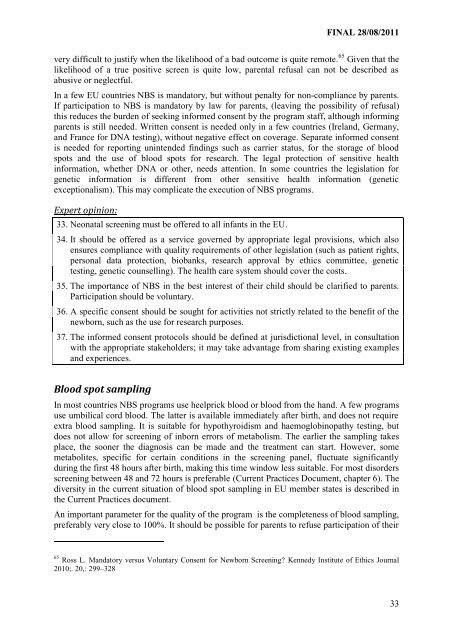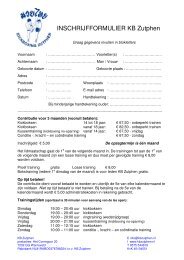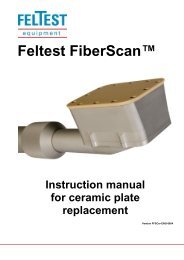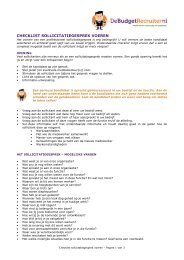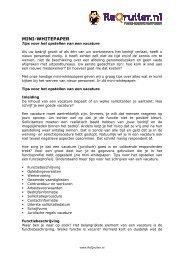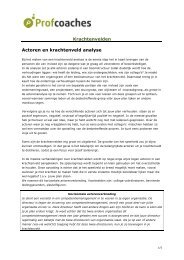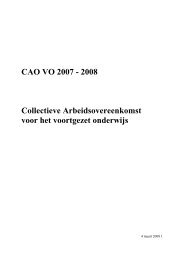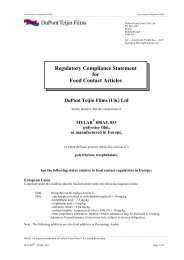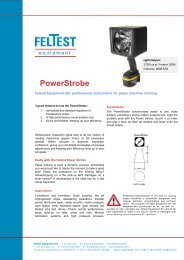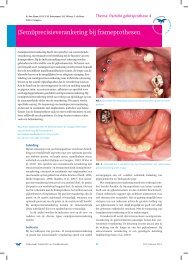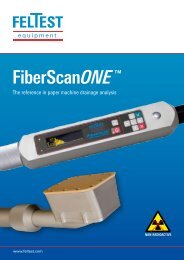Newborn screening in Europe Expert Opinion document
Newborn screening in Europe Expert Opinion document
Newborn screening in Europe Expert Opinion document
Create successful ePaper yourself
Turn your PDF publications into a flip-book with our unique Google optimized e-Paper software.
FINAL 28/08/2011very difficult to justify when the likelihood of a bad outcome is quite remote. 65 Given that thelikelihood of a true positive screen is quite low, parental refusal can not be described asabusive or neglectful.In a few EU countries NBS is mandatory, but without penalty for non-compliance by parents.If participation to NBS is mandatory by law for parents, (leav<strong>in</strong>g the possibility of refusal)this reduces the burden of seek<strong>in</strong>g <strong>in</strong>formed consent by the program staff, although <strong>in</strong>form<strong>in</strong>gparents is still needed. Written consent is needed only <strong>in</strong> a few countries (Ireland, Germany,and France for DNA test<strong>in</strong>g), without negative effect on coverage. Separate <strong>in</strong>formed consentis needed for report<strong>in</strong>g un<strong>in</strong>tended f<strong>in</strong>d<strong>in</strong>gs such as carrier status, for the storage of bloodspots and the use of blood spots for research. The legal protection of sensitive health<strong>in</strong>formation, whether DNA or other, needs attention. In some countries the legislation forgenetic <strong>in</strong>formation is different from other sensitive health <strong>in</strong>formation (geneticexceptionalism). This may complicate the execution of NBS programs.<strong>Expert</strong> op<strong>in</strong>ion:33. Neonatal <strong>screen<strong>in</strong>g</strong> must be offered to all <strong>in</strong>fants <strong>in</strong> the EU.34. It should be offered as a service governed by appropriate legal provisions, which alsoensures compliance with quality requirements of other legislation (such as patient rights,personal data protection, biobanks, research approval by ethics committee, genetictest<strong>in</strong>g, genetic counsell<strong>in</strong>g). The health care system should cover the costs.35. The importance of NBS <strong>in</strong> the best <strong>in</strong>terest of their child should be clarified to parents.Participation should be voluntary.36. A specific consent should be sought for activities not strictly related to the benefit of thenewborn, such as the use for research purposes.37. The <strong>in</strong>formed consent protocols should be def<strong>in</strong>ed at jurisdictional level, <strong>in</strong> consultationwith the appropriate stakeholders; it may take advantage from shar<strong>in</strong>g exist<strong>in</strong>g examplesand experiences.Blood spot sampl<strong>in</strong>gIn most countries NBS programs use heelprick blood or blood from the hand. A few programsuse umbilical cord blood. The latter is available immediately after birth, and does not requireextra blood sampl<strong>in</strong>g. It is suitable for hypothyroidism and haemoglob<strong>in</strong>opathy test<strong>in</strong>g, butdoes not allow for <strong>screen<strong>in</strong>g</strong> of <strong>in</strong>born errors of metabolism. The earlier the sampl<strong>in</strong>g takesplace, the sooner the diagnosis can be made and the treatment can start. However, somemetabolites, specific for certa<strong>in</strong> conditions <strong>in</strong> the <strong>screen<strong>in</strong>g</strong> panel, fluctuate significantlydur<strong>in</strong>g the first 48 hours after birth, mak<strong>in</strong>g this time w<strong>in</strong>dow less suitable. For most disorders<strong>screen<strong>in</strong>g</strong> between 48 and 72 hours is preferable (Current Practices Document, chapter 6). Thediversity <strong>in</strong> the current situation of blood spot sampl<strong>in</strong>g <strong>in</strong> EU member states is described <strong>in</strong>the Current Practices <strong>document</strong>.An important parameter for the quality of the program is the completeness of blood sampl<strong>in</strong>g,preferably very close to 100%. It should be possible for parents to refuse participation of their65 Ross L. Mandatory versus Voluntary Consent for <strong>Newborn</strong> Screen<strong>in</strong>g? Kennedy Institute of Ethics Journal2010;. 20,: 299–32833


